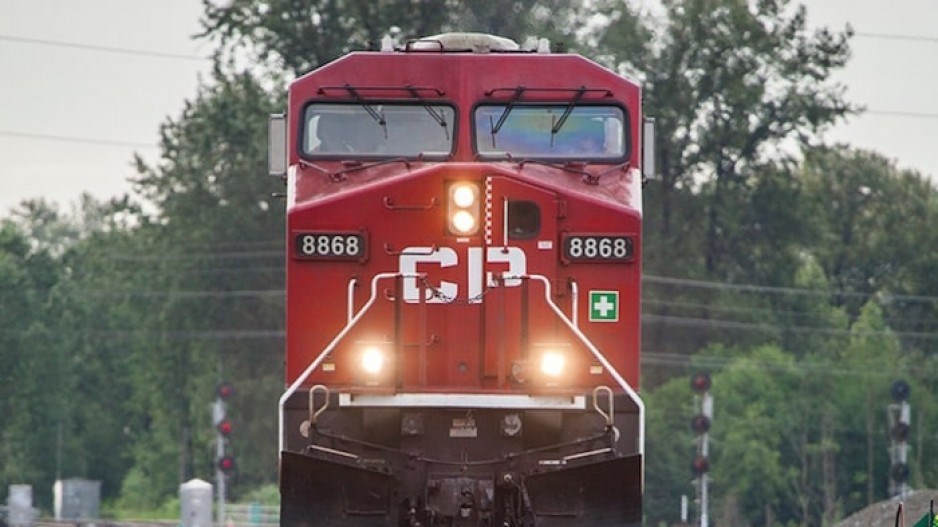The dire situation facing southwestern B.C. after the washouts of CN and CP rail lines linking Vancouver to the rest of Canada speaks more to the overall design of the supply-chain system today than the need to improve rail transport in the country.
That is the opinion of a top-level expert in Canada’s rail transport logistics, who said that because the current supply-chain breakdown was triggered a once-in-a-lifetime weather event, the blame should not be placed on a rail system often cited by critics as a trade bottleneck in the country.
“For the last 30 years, the trend in the supply chain system and its components – which include the railroads – is to make everything on a schedule and do it just in time, so there is no wait whatsoever,” said Garland Chow, associate professor emeritus of operations/logistics at the University of British Columbia’s Sauder School of Business and the former director of the Bureau of Intelligent Transportation Systems and Freight Security.
“You are basically removing all the slack in the system, including – for the retailers and the suppliers – little to no inventory. The idea is to make transportation so efficient and reliable that you don’t need inventory and the extra slack. But when you have a disaster like this, it’s worst than what it would have been 20 years ago because we would have had more inventory back then.”
The atmospheric river rainstorm earlier this month created record rainfall and flooding unseen in decades in southwestern B.C., with washouts and mudslides shutting down both CN and CP rail lines connecting the Port of Vancouver to train traffic that is critical to cargo movement across the country and potentially onto global markets.
On Friday, CP said it is aiming to restore rail access to Vancouver on its line by next week, with about 20 sections of track repaired in an around-the-clock effort by crews between Kamloops and the Lower Mainland.
CN, meanwhile, has not provided an update or estimates on when it will resume its rail operations in southwestern B.C.
The recent events have put the spotlight back on Canada’s rail freight system, which had been under scrutiny in recent years as a bottleneck for commodities like crude, grains and fertilizers. This spring’s wildfires and last year’s rail blockades have caused major delays in rail traffic, adding strains to a supply-chain system that has been further gnarled by the effects of the COVID-19 pandemic.
Chow, however, noted that both CN and CP operate among the most efficient and effective rail systems in the world, benefitting from the precision scheduled railroading (PSR) concept implemented at both companies by industry visionary E. Hunter Harrison. As such, Chow said he doesn’t see the need for Canadian rail to examine whether or not they need to reinvent the wheel, since the system is already on its way to recovery.
“Traditionally, you would have these type of disruptions anyways, whether it be a labour issue, a crash or natural events,” Chow said. “Overall, I’m not going to complain about the rail infrastructure we have, and the main reason is that there’s nothing wrong with it.
“If there’s anything that’s going to be learned ... is that we have to be even more careful when we do maintenance of our network. But this is a flood. And if it’s ascertained that this is going to happen regularly, you can be sure the rail companies will find the hotspots and improve the infrastructure at those spots.”
Chow also warned against over-responding to the washouts and the network blockage by adding unnecessary capacity in the post-recovery, rebuilding phase of the rail network repairs.
“This was the most violent storm in terms of water volume we’ve ever encountered,” he said. “You may recall a few years ago that London’s Heathrow Airport closed down because of a once-in-100-years snowstorm, and everyone complained about the airport not having enough snowplows. Well, if you had them, they would be sitting there 10, 15 years before you ever use it. It’s poor investment.”




